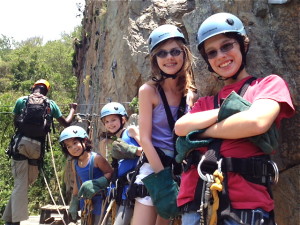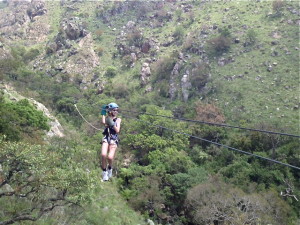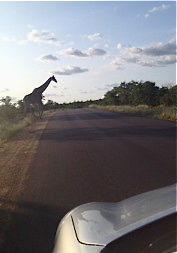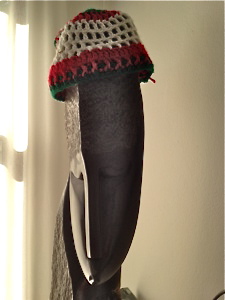Push Me Pull You
It was going to be a slow morning, the way weekend mornings should be. Little feet pattered about in the hallway and the kitchen, but ostensibly my assistance was not required. There was nowhere to go, no rushing to get up and out for school, no running to an appointment. I snuck into the kitchen to make a coffee – my second cup, since Short-pants had already brought me the first – and slipped back into bed. I puffed the pillows upright against the wall and surveyed the towering stack of books beside my bed table, wondering which one to choose for a leisurely morning read.
“Who drank the milk I left in the glass?” Short-pants yelled from the kitchen. Maybe not so much a yell as a cry, and it was followed by angry tears.
I could picture it: a tumbler, its glass discolored from years of dishwasher wear, filled halfway with milk. It’d been on the counter, next to an empty bowl. I’ve seen that glass of milk a hundred times, after just as many breakfasts, left on the counter unfinished. We try not to waste food in our family, so I always set the glass aside and use the milk in my coffee. It’s regularly the source of milk for my second cup of the morning.

Just moments before her forlorn cry, I’d dumped that very glass of milk into the frother and used it to to top off the cup of coffee I’d re-heated in the microwave. It was in the cup I’d brought back to bed with me.
“I think I used it, sweetie.”
Short-pants stormed into the bedroom. Her face was red, her lips turned down. “I was going to use that to make hot chocolate for Papa!”
I apologized and did my best to assure her that it was okay, her papa could live without it. De-facto didn’t protest. This did not assuage her anger. Remembering that I’d seen some light cream in the fridge, I suggested we could mix that with a little water and froth it up for him and it’d be perfect, maybe even better than milk.
“Really?” She wiped the tears running down her cheek. “Will you help me?”
Would I make the lazy mother’s choice? Having just put myself back in bed for a few moments of peace, that was my first instinct. I tried to explain where the cream was and how much water to mix in, but this only resulted in a blank stare from a girl on the verge of more tears. Since I’d profited from what was apparently the last drop of milk in our home, I felt obliged to help with the situation. I flipped back that cozy comforter, pushed myself out of bed and followed her to the kitchen. We found what was left in the small carton of cream and mixed it with a little water to thin it. The frother whipped it up into a cloud of warm foam, allowing her to achieve her objective of serving her papa a cup of hot chocolate in bed.
While I was in the kitchen, Buddy-roo called to me, asking for help with some research for her school presentation. I’d been nagging her to do it for three days, she was finally starting. I figured I could make a quick detour to the table where she was working, point her in the right direction and then return to the warmth of my bed and the pile of books beside it. As I worked with Buddy-roo – which wasn’t as quick a detour as I’d hoped – Short-pants returned to the kitchen and exploded into tears, again.

“I didn’t get any milk this morning.”
I wanted to strangle her for making such a big fuss out of this shortage. We could all live one morning without dairy in our drinks. Except she’d made a milky beverage for everyone in the family before making one for herself. Selfless, some might say.
After a discussion about the nature of this crisis and whether it merited such outbursts, then a quick brainstorming about how the problem might be solved, it was decided that she could get dressed and go to the store to buy some milk. A glance at the clock shocked me into the realization of what time it was; my Saturday errands ought to be run sooner rather than later when the stores get crowded. So much for my thirty minutes of peaceful reading in bed.
We both dressed and headed out together. The plan was to go to the little Arab store and get a bottle of milk, then she’d take it back home and I’d go off and do the rest of my errands. Her mood brightened as we descended the four flights of stairs and opened the door to the street. Sometimes just getting out of the house can make you feel better about anything. At the little shop, we selected a bottle of milk and I paid the shopkeeper, a man who used to watch me navigate (precariously) the narrow aisles of his store with Short-pants in her baby-stroller. He made a comment about how she’s grown. I nodded with a dual expression of pride and bewilderment.
Outside the store, I offered her the change he’d given me. “Buy some pain-au-chocolate for you and your sister.”
“That’s what I was already planning to do.” She opened her palm. It held several coins she’d taken from her own piggy-bank.
“Here,” I gave her my coins anyway. “Use mine. Get one for Papa, too.”
Smiling, Short-pants reached up and kissed me, turned around and walked – almost running but not quite – down the street toward the patisserie. She has a signature gait, it’s a little off center, pronounced because of her lengthening legs. I watched until she disappeared into the bakery. Tears in my eyes, now, my heart hurt from the morning’s mix of angst and awe. She’s oh so sensitive, but at the same time so very strong.

That’s it, isn’t it? The push-me-pull-you of parenting. It’s the fiercest can’t-you-just-leave-me-alone-for-a-moment juxtaposed with a desperate please-don’t-grow-up-and-go-away-yet. Both feelings rushing at you in the span of thirty minutes, thirty quiet minutes that you thought you’d have for yourself, but instead thirty minutes of full-throttle parenting, dancing to the highs and lows of little people inhabiting your life, ultimately marveling at the size and breadth of their hearts, little hearts that push and pull at every string in yours.























